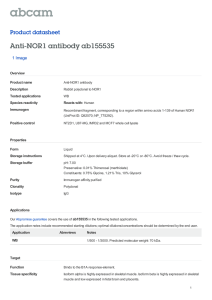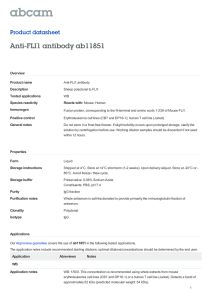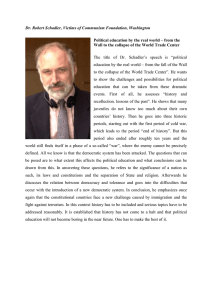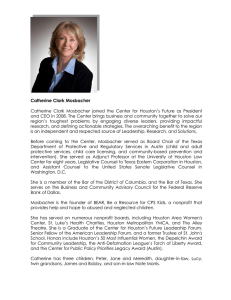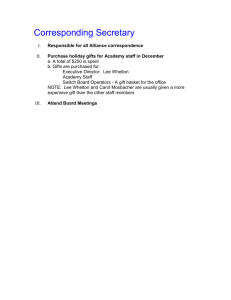The University of Texas M.D. Anderson Cancer Center
advertisement
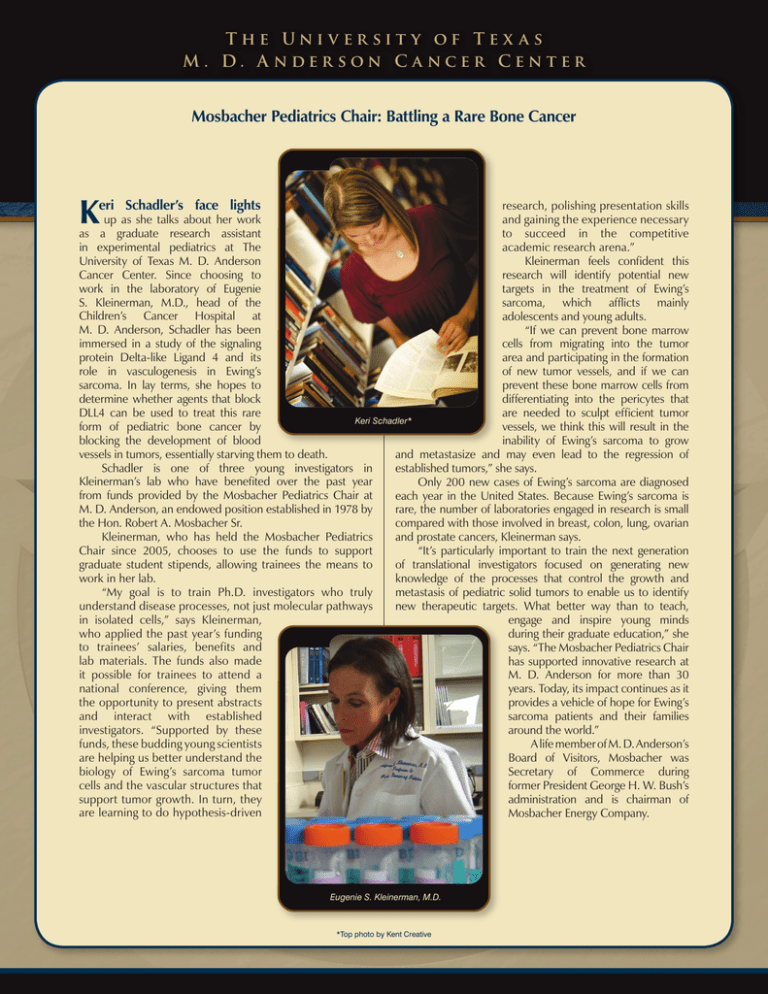
The Uni v er sit y of Tex a s M. D. A nder son C a ncer Center Mosbacher Pediatrics Chair: Battling a Rare Bone Cancer Keri Schadler’s face lights research, polishing presentation skills up as she talks about her work and gaining the experience necessary as a graduate research assistant to succeed in the competitive in experimental pediatrics at The academic research arena.” University of Texas M. D. Anderson Kleinerman feels confident this Cancer Center. Since choosing to research will identify potential new work in the laboratory of Eugenie targets in the treatment of Ewing’s S. Kleinerman, M.D., head of the sarcoma, which afflicts mainly Children’s Cancer Hospital at adolescents and young adults. M. D. Anderson, Schadler has been “If we can prevent bone marrow immersed in a study of the signaling cells from migrating into the tumor protein Delta-like Ligand 4 and its area and participating in the formation role in vasculogenesis in Ewing’s of new tumor vessels, and if we can sarcoma. In lay terms, she hopes to prevent these bone marrow cells from determine whether agents that block differentiating into the pericytes that DLL4 can be used to treat this rare are needed to sculpt efficient tumor Keri Schadler* form of pediatric bone cancer by vessels, we think this will result in the blocking the development of blood inability of Ewing’s sarcoma to grow vessels in tumors, essentially starving them to death. and metastasize and may even lead to the regression of Schadler is one of three young investigators in established tumors,” she says. Kleinerman’s lab who have benefited over the past year Only 200 new cases of Ewing’s sarcoma are diagnosed from funds provided by the Mosbacher Pediatrics Chair at each year in the United States. Because Ewing’s sarcoma is M. D. Anderson, an endowed position established in 1978 by rare, the number of laboratories engaged in research is small the Hon. Robert A. Mosbacher Sr. compared with those involved in breast, colon, lung, ovarian Kleinerman, who has held the Mosbacher Pediatrics and prostate cancers, Kleinerman says. Chair since 2005, chooses to use the funds to support “It’s particularly important to train the next generation graduate student stipends, allowing trainees the means to of translational investigators focused on generating new work in her lab. knowledge of the processes that control the growth and “My goal is to train Ph.D. investigators who truly metastasis of pediatric solid tumors to enable us to identify understand disease processes, not just molecular pathways new therapeutic targets. What better way than to teach, in isolated cells,” says Kleinerman, engage and inspire young minds who applied the past year’s funding during their graduate education,” she to trainees’ salaries, benefits and says. “The Mosbacher Pediatrics Chair lab materials. The funds also made has supported innovative research at it possible for trainees to attend a M. D. Anderson for more than 30 national conference, giving them years. Today, its impact continues as it the opportunity to present abstracts provides a vehicle of hope for Ewing’s and interact with established sarcoma patients and their families investigators. “Supported by these around the world.” funds, these budding young scientists A life member of M. D. Anderson’s are helping us better understand the Board of Visitors, Mosbacher was biology of Ewing’s sarcoma tumor Secretary of Commerce during cells and the vascular structures that former President George H. W. Bush’s support tumor growth. In turn, they administration and is chairman of are learning to do hypothesis-driven Mosbacher Energy Company. Eugenie S. Kleinerman, M.D. *Top photo by Kent Creative
